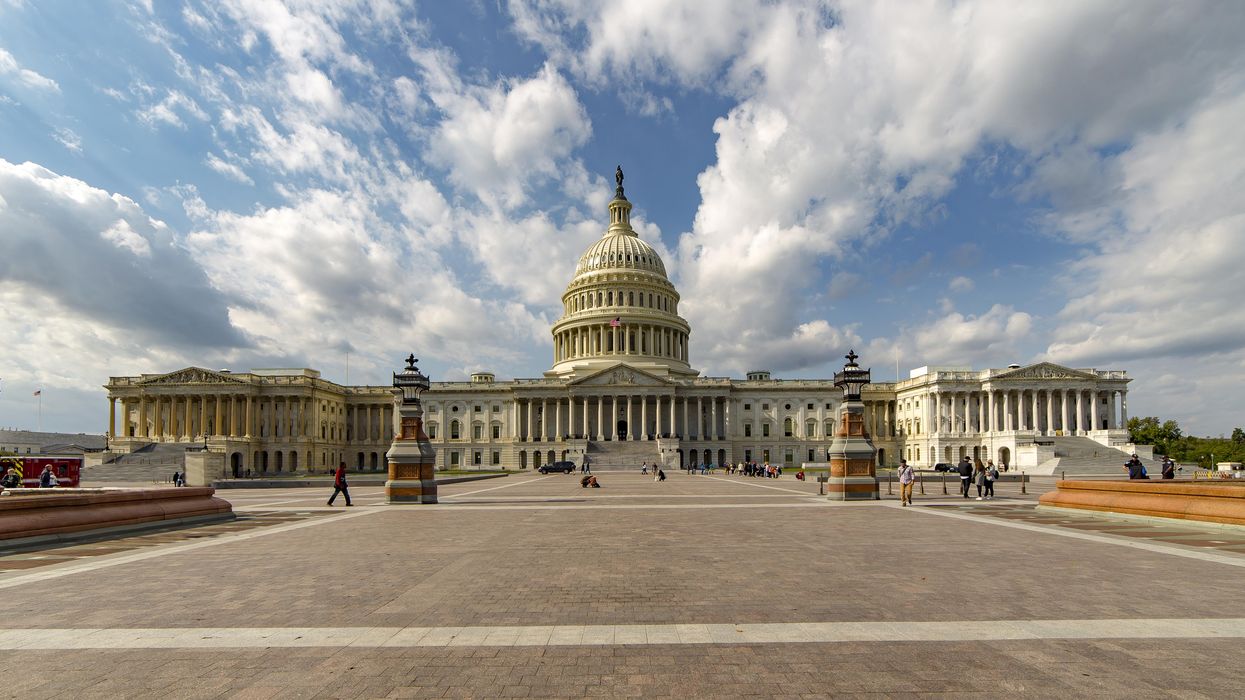Flynn is the president of Common Cause, one of the nation's oldest democracy reform advocacy organizations.
President Biden speaks frequently about democracy. He mentioned it 11 times in his inaugural address. But words must be matched with collective leadership. As he said in that speech, “we will lead not merely by the example of our power but by the power of our example.”
The United States will put this to the test when the Biden administration convenes a Summit for Democracy this week with representatives from more than 100 nations. The summit will “set an affirmative agenda for democratic renewal around the world,” according to the president. It will launch a “year of action” to “make democracies more responsive and resilient.”
It comes at a precarious time for U.S. democracy. After voters showed up in record numbers in 2020, state legislatures in 19 states passed 33 laws to make it harder to vote. Many of these laws disproportionately affect voters of color, young voters and others whose voices are silenced.
The assault on free and fair elections extends beyond bad laws. Disciples of the former president’s Big Lie have focused efforts on installing loyalists to local election boards. One in three election officials feel unsafe at work and face a barrage of violent threats for doing their job. Partisan legislators are gerrymandering districts to silence voters and subvert the bedrock principle of “one person one vote.”
The summit could be a hopeful end to a year that began with a racist mob of insurrectionists storming Congress to attack the peaceful transfer of power. The events of Jan. 6 interrupted two centuries of this practice in a democracy that survived the Civil War, two world wars, the Depression and many other hardships.
The specter of election sabotage is dangerous. The world took notice. Last month, an international think tank placed the United States on its list of “ backsliding democracies ” for the first time.
Earlier this year, Biden said that “we are in the midst of a fundamental debate about the future and direction of our world, between those who argue that ... autocracy is the best way forward and those who understand that democracy is essential to meeting these challenges.” Hence the announcement of the summit as a way to “demonstrate that democracies can deliver by improving the lives of their own people.”
Democracies must be responsive to the people, who hold the ultimate power. But the undue influence of money in politics, structural racism, corruption and voter suppression can poison the well.
Congress has the power to strengthen our democracy with legislation. The House of Representatives — the chamber closest to the People — did its part on at least three occasions this year. It passed the For the People Act to protect and expand the freedom to vote with fair national standards, break the grip of big money in politics, end gerrymandering, and bolster ethical standards in government. It passed the John Lewis Voting Rights Advancement Act to repair and strengthen the Voting Rights Act and protect against racial discrimination in voting. And it passed the Washington, D.C. Admission Act to grant statehood to the people of our nation’s capital.
These bills (with the Freedom to Vote Act, a compromise version of the For the People Act) await Senate passage. Fifty Senators have voted four times to begin debate on some of them, but all Senate Republicans (with one exception) voted to block them.
No Senate loophole should stand in the way. The filibuster, as abused in today’s Senate, gives a minority of 41 out of 100 senators veto power over legislation being debated, unless it is subject to a filibuster exception. Those 41 senators can represent just 24 percent of the population.
Biden himself has expressed interest in solving this problem. He has spoken forcefully about voting rights. He has signed executive orders, installed voting rights advocates in the Department of Justice and nominated them to the federal bench, and tasked the vice president with leading this work.
But there is no substitute for legislation, and the time to act is now. Recently, more than 150 democracy scholars wrote that “defenders of democracy in America still have a slim window of opportunity to act. But time is ticking away, and midnight is approaching.”
If we are to lead by the “power of our example,” President Biden and senators must step up and do what it takes to pass these bills as quickly as possible. When our leaders embark on the year of action at the summit, this must be a top priority. Democracy is resilient, and they have the power to act. We cannot afford to wait.



















Trump & Hegseth gave Mark Kelly a huge 2028 gift